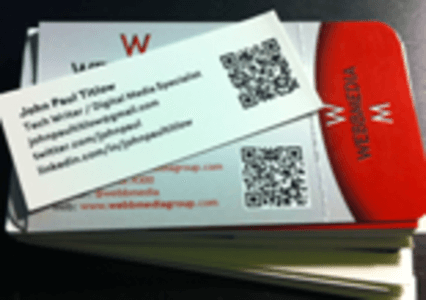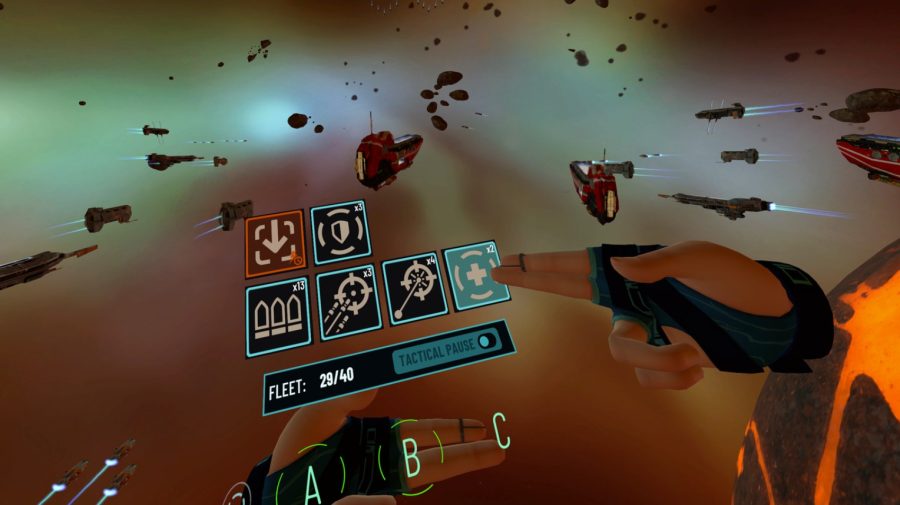Fall is the unofficial start of conference season for professionals looking to get together, learn more and network with one another. I’ve personally been to four conferences in the last month alone, some about technology and business, and one for journalists.

Regardless of industry, there is one age-old relic of professional networking that refuses to die: the business card. Even at the most high-tech and cutting edge of events, you still can’t mingle without collecting a pocket full of paper cards. Surely, this can’t go on forever. The business card is ripe to be disrupted. But what will replace it?
Keeping Paper Cards, But Digitizing Them
There are a handful of solutions available that don’t attempt to replace printed business cards, but rather bring them into the digital space by scanning them.
ScanBizCards
ScanBizCards is one such option. Using an iPhone 3GS or higher, take a picture of that business card your new contact just handed to you. The app recognizes text on the card, like the person’s name, phone number and email address, and then imports that information directly into your contacts.
Drawbacks: Since ScanBizCards is iPhone-only, it has an obvious barrier to being widely adopted.
Using QR Codes on Business Cards
Just recently, I’ve started to notice business cards that include a 2D barcode on them so recipients can scan them to view digital content, usually the business’s Website.
Drawbacks: Although QR codes are slowly picking up greater adoption in the United States, they’re still far from being mainstream.
Google Goggles
Whether a business card includes a QR code or not, it can usually be read by Google Goggles. The app scans the card for text and then runs a Google search for any words it finds. It also recognizes QR codes.
Drawbacks: It has mixed results with different business cards, at least on the iPhone. In some cases, it searches the entire block of text (person’s name, title, email, website, etc) all in one go, which obviously doesn’t make for a very effective search query.
Digital-Only Options
The popular adoption of smart phones has given rise to a few business card alternatives that attempt to forgo the use of paper all together.
Bump
Bump is one of the more well-known alternatives, and it’s easily one of the coolest. For those who don’t know, Bump is an application for iPhone and Android that lets you literally bump phones with another user and wirelessly exchange contact information, photos or calendar events. Not only is it multi-platform, but they have an API that lets developers build cool apps using Bump’s functionality.
Drawbacks:Bump has the advantage of being cross-platform between iPhone and Android, but it still doesn’t have a Blackberry version. More importantly, not all professionals are yet carrying smart phones, so it may be awhile before a solution like this can conceivably replace the business card.
SnapDat
SnapDat is an iPhone app that aims to bring the entire exchange into the cloud. Design and build your digital business card and easily exchange it with any other contact who also has the app. Since this is a bit too limiting to be useful in all networking situations, the same contact info can alternatively be sent as a vCard attached to an email. SnapDat also integrates with the iPhone address book and popular social networking sites.
Drawbacks: For now, SnapDat only works on iPhone, so other mobile phone owners are out of luck.
Something More Futuristic, Perhaps?
So what will the business card of the future be? Watching an app like Google Goggles do its thing, it’s easy to imagine a future in which that technology is taken a step further, perhaps married with facial recognition (assuming we could all get over how creepy that sounds). From a technical standpoint, there’s no reason our mobile devices wouldn’t be able to recognize people we meet and add them to our phone’s contacts automatically.
There’s a moment in a TED demo video from last year in which MIT’s Pattie Maes and Pranav Mistry show how a wearable gestural interface they created can recognize somebody’s face and project a tag cloud of relevant words onto that person in physical space (Skip to 6:48 in the video below). Could similar technology one day eliminate the need to physically hand over information about ourselves?
Apps like Bump and Google Goggles seem like they have potential, but nothing is close to completely replacing the business card. Issues like overall smart phone adoption rates and cross-platform limitations make it a difficult for a digital alternative to fully replace good old-fashioned paper anytime soon.
What do you think? Are you awaiting the day when business cards disappear, or do you still find value in having a physical artifact from when you people in person? Share your thoughts in the comments.










